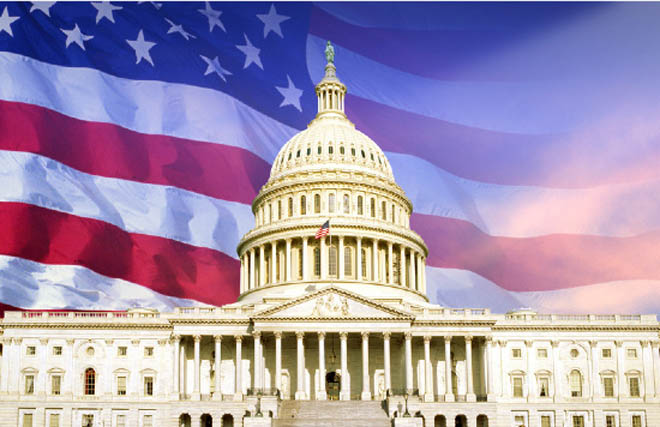The United States Thursday called the breakthrough political agreement in Iraq an "Iraqi victory" and "big step" that will result in an inclusive government and major redistribution of power, DPA reported.
The agreement that ended an eight-month impasse was hailed by Obama administration officials as the "first truly inclusive and cross sectarian government" of Iraq, one that includes the three largest vote-getting groups - Shiites, Kurds and Sunnis.
"It's a very good result for those working for peace (and a) bad result for those whose agenda is more sectarianism and violence," a senior administration official told reporters.
"What we've seen in Iraq is ... the emergence of politics, Iraqis resolving their differences ... through the political process," the official said.
Just hours before, the Iraqi Parliament elected Osama al-Nujaifi, a Sunni Arab nationalist, as speaker of parliament. In addition, a new strategic council was created that former prime minister Iyad Allawi will likely head, returning the Sunni leader to a powerful post.
Nuri al-Maliki, the incumbent prime minister who is Shiite, will soon be re-appointed prime minister and a cabinet can begin running the country.
The Kurdish leader Jalal Talabani was re-elected president in the second round of voting.
The power-sharing is "the single best guardian against the return to sectarianism and violence," a US official said.
Under ousted dictator Saddam Hussein, minority Sunnis held often brutal sway over majority Shiites, but since the US-led invasion of 2003, that balance changed as Shiites took charge of the government. Sunni exclusion and resentment fuelled much of the lethal insurgency in the interim years.
US officials emphasized the importance of inclusion of the Sunni faction - Allawi and his secular Iraqiya List, the largest party in parliament with 91 seats
Allawi had been a major holdout in the negotiations, insisting on the prime ministership because his party received the largest number of votes.
The US officials noted that Allawi would likely take chairmanship of a new body created in the negotiations - a national council on strategy - which would put him in a position to serve as a check on the balance of power in Baghdad.
The council will oversee Iraq's strategic direction in security, foreign policy, the economy, natural resources and other major issues, the US officials said, noting that "some details are still to be worked out."
Reports say US President Barack Obama asked Allawi to take the job and agree to end the country's power struggle.
"Iraqiya had to be in on the deal, had to be part of this new government," the US official told reporters. And the fact that the council will presumably be headed by "someone with the domestic and international clout" of Allawi bodes well for the arrangement, another official said.
The US officials noted that the power-sharing deal provides Iraqiya and the Kurdish alliance enough clout to make sure that the agreements are implemented and moving forward in good faith. If it turns out otherwise, "they will make their concerns known jointly and reserve the right to leave the government together," which would cause the government to fall.
Under the agreement, it appeared that all major cabinet and senior positions in government would be allocated proportionately to the results of the elections, the US officials said.
That would mean that Iraqiya is "full in" and will hold "major levers of influence," the officials said.
During the long months of negotiations, Allawi and Iraqiya had been insistent on having the presidency after they gave up on what they felt was their right to the prime minister position. That would have meant the Kurds giving up that job.
The new power-sharing formula gives Iraqiya speakership of Parliament as well as chairmanship of the new council, a "redistribution of powers that proved attractive enough to Iraqiya and Allawi to come in," one official noted.
US officials also noted that the emergence of such an inclusive government in Iraq is a "strong rejection of interference" from external influences such as those of Iran, which had wanted a "narrow" Shiite government in Baghdad.






